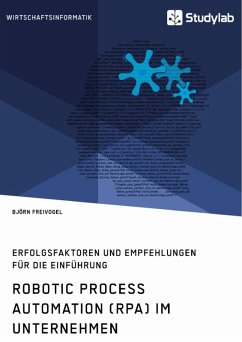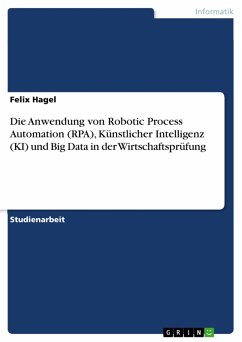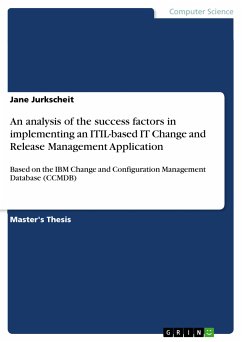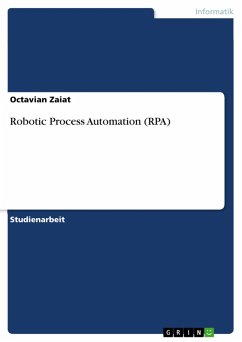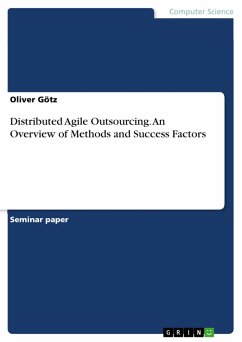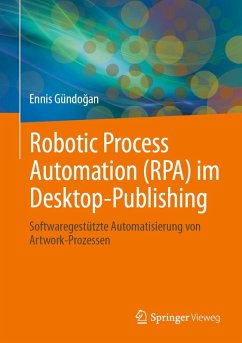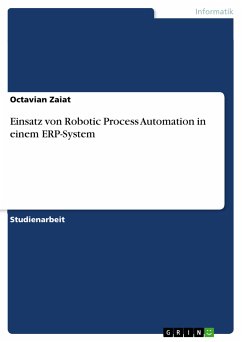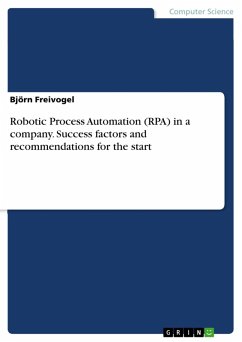
Robotic Process Automation (RPA) in a company. Success factors and recommendations for the start (eBook, PDF)
Versandkostenfrei!
Sofort per Download lieferbar
36,99 €
inkl. MwSt.

PAYBACK Punkte
0 °P sammeln!
Document from the year 2020 in the subject Computer Science - Commercial Information Technology, , language: English, abstract: Numerous tasks in a company follow a structured process and could be automated. However, they occur too rarely to justify the automation effort. Robotic Process Automation (RPA) aims to change this: By having a robot emulate the input on an existing user interface, no changes are required in the target application. Automation is possible in a timely and cost-effective manner. So far, many companies have had positive experiences with RPA. However, there are also a numb...
Document from the year 2020 in the subject Computer Science - Commercial Information Technology, , language: English, abstract: Numerous tasks in a company follow a structured process and could be automated. However, they occur too rarely to justify the automation effort. Robotic Process Automation (RPA) aims to change this: By having a robot emulate the input on an existing user interface, no changes are required in the target application. Automation is possible in a timely and cost-effective manner. So far, many companies have had positive experiences with RPA. However, there are also a number of failed projects. What factors determine success and failure when introducing an RPA system? Björn Freivogel explains how the introduction of robotic process automation succeeds. He first gives an overview of the topic of RPA and presents the features and functionality of RPA systems. Based on this, he examines which properties suitable processes should have and how important it is to systematically select process candidates. In his publication, Freivogel not only summarizes the theoretical basics, but also gives practical recommendations for the introduction of RPA in the company. From the content: - robotic desktop automation; - agility; - Agile methodology; - business process management system; - BPMS
Dieser Download kann aus rechtlichen Gründen nur mit Rechnungsadresse in A, B, BG, CY, CZ, D, DK, EW, E, FIN, F, GR, HR, H, IRL, I, LT, L, LR, M, NL, PL, P, R, S, SLO, SK ausgeliefert werden.




